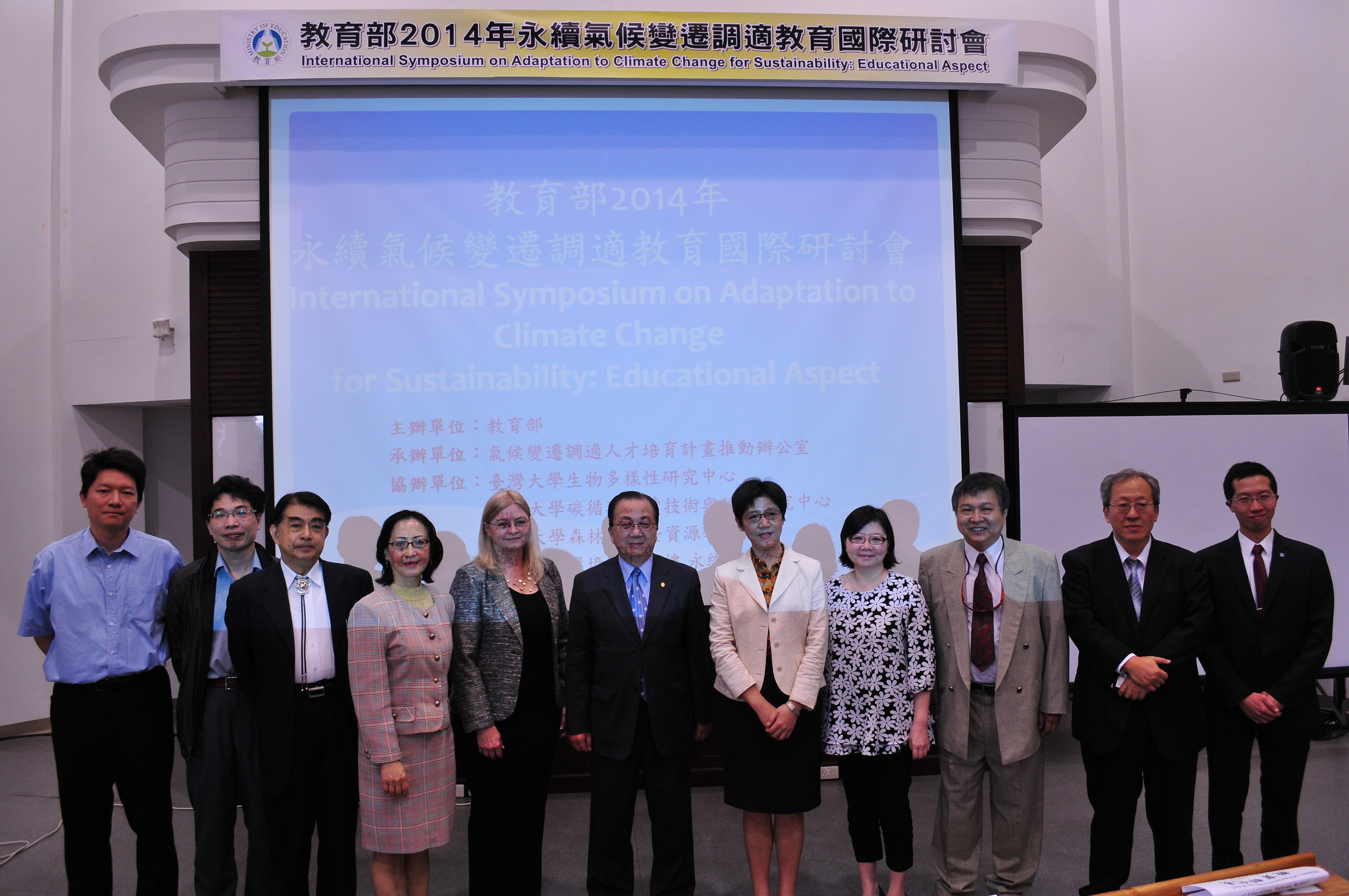MOE Holds Personnel Training Program International Symposium on Adaptation to Climate Change for Sustainability: Educational Aspect

Global warming and climate change can no longer be prevented by reducing greenhouse gas emissions alone. The United Nations, governments, and NGOs around the world are working to develop various mitigation strategies. Due to Taiwan’s unique geographic and geologic conditions, adaptation seems to be an essential strategy for risk reduction in facing climate change. Equally important are the issues of adaptation to social and economic development so as to cope with extreme weather conditions and climate change while maintaining standards of living and development. In recent years, the Taiwanese government has promoted adaptation mechanisms; during this process, the knowledge gap and demand for specialists from the industrial sectors are anticipated to be filled through education.
This international symposium was organized by the Ministry of Education’s Department of Information and Technology, with the goal of bringing domestic education on climate change adaptation status to international level and to foster international exchange and collaboration so as to deepen teachers’ knowledge of climate change adaptation nationwide. Experts and specialists in education from the United States, Germany, South Korea, Sweden, China, and Taiwan were present at the symposium to share knowledge gleaned from case studies on energy, water resources, and disaster prevention and its connection with the international community. Participants were prompted to discern domestic and foreign trends in sustainability and educational development, thus inspiring new thinking and strategies for sustainable development and adaptation to climate change. Speakers from Taiwan shared their experience in disaster management as well as energy and water resource planning, and pointed out challenges that will be faced in the future as well as how to respond to them. Among foreign speakers, the case study from Yale University attracted the most attention. Yale promoted the Leadership in Energy & Environmental Design (LEED) certification for their buildings in their sustainable strategic plan for 2010- 2013, resulting in three platinum, six gold, and two silver LEED buildings as well as 10 LEED certified laboratories. In addition, through a sustainable food cultivation program, the goals of scientific research and environmental education were reached in a demonstration project consisting of two farms, with the food produced exceeding local organic standards. This shows the proactive attitude of Yale University in reaching out for sustainability and adaptation to climate change. Lively discussions have paved clear pathways for the specialist training program, and an international collaboration on education for adaptation to climate change has been initiated to respond to the future impact of climate change.
This international symposium was organized by the Ministry of Education’s Department of Information and Technology, with the goal of bringing domestic education on climate change adaptation status to international level and to foster international exchange and collaboration so as to deepen teachers’ knowledge of climate change adaptation nationwide. Experts and specialists in education from the United States, Germany, South Korea, Sweden, China, and Taiwan were present at the symposium to share knowledge gleaned from case studies on energy, water resources, and disaster prevention and its connection with the international community. Participants were prompted to discern domestic and foreign trends in sustainability and educational development, thus inspiring new thinking and strategies for sustainable development and adaptation to climate change. Speakers from Taiwan shared their experience in disaster management as well as energy and water resource planning, and pointed out challenges that will be faced in the future as well as how to respond to them. Among foreign speakers, the case study from Yale University attracted the most attention. Yale promoted the Leadership in Energy & Environmental Design (LEED) certification for their buildings in their sustainable strategic plan for 2010- 2013, resulting in three platinum, six gold, and two silver LEED buildings as well as 10 LEED certified laboratories. In addition, through a sustainable food cultivation program, the goals of scientific research and environmental education were reached in a demonstration project consisting of two farms, with the food produced exceeding local organic standards. This shows the proactive attitude of Yale University in reaching out for sustainability and adaptation to climate change. Lively discussions have paved clear pathways for the specialist training program, and an international collaboration on education for adaptation to climate change has been initiated to respond to the future impact of climate change.
